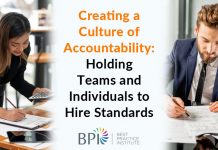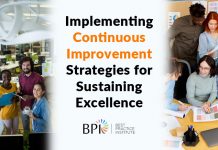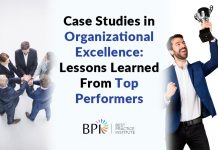If commitment and enthusiasm mark a leading CEO, David Boyd Burritt brings them all to US Steel. If customer and employee focus build a Most Loved Workplace®, David B. Burritt ensures a physically and psychologically safe environment to challenge and forge its best future.
The 120 years since its founding have seen volatile swings in US Steel’s position among steelmakers, some threats and lost opportunities of their own making. However, extraordinary performance metrics reflect a recently reborn and energized organization that ranks among the Top 100 Most Loved Workplaces®.
Dave Burritt views its S.T.E.E.L. Principles as foundational to everything they do. His words and actions, dynamic and optimistic, create a clear path for employees to follow. Employees are empowered to be bold and move fast, opting for doing the right thing aligned with these principles:
In one of my recent shows with David (January 10, 2022), we explored how his attention to safety practices and core values have made a difference in the culture and consequent performance at US Steel.
“… profitable steel solutions for our people –
and for the planet!”
David B. Burritt joined Caterpillar, Inc. promptly after graduating with an MBA from the University of Illinois-Urbana. He worked his way up to Chief Financial Officer before joining US Steel in 2013 as its EVP/CFO, leading to appointment as President and CEO in 2017.
The United States Steel Corporation remains a Fortune 250 business and a leading steel producer reporting Q4 2021 net earnings of $1.069 billion and adjusted EBITDA of $1.728 billion or full-year 2021 adjusted EBITDA of $5.592 billion. They also maintain liquidity of $4.971 billion with $2.522 billion cash.
The corporation survived the economic pressures of the COVID pandemic and lockdowns despite declines in metal-centered needs like vehicles, appliances, and construction. Many companies pulled their resources close and kept their heads down to weather the storm.
Burritt likes to see around corners, jump hurdles, and skate towards the puck rather than rest on past laurels. Acquisitions like Big River Steel and Carnegie (January 15, 2001) bring innovation, agility, and lean infrastructures to a blue-chip brand. US Steel remains proud of its proprietary XG3™ advanced high-strength steel. However, it shares a new excitement about the potential in Big River’s Flex Mill® equipment and AI technology and its partnership (January 26, 2022) with Carnegie Foundry’s reputation in autonomous robotics, AI, and machine learning.
US Steel has strengthened its iconic reputation with all-time high profits, world-class quality, and performance safety. Burritt notes, “We attribute much of our recent success to what our employees have done and how they’ve grown through this difficult pandemic. It’s really helping us fulfill our mission.” The evolving mission requires a transformational change to reimagine carbon-intensive production into “profitable steel solutions for our people – and for the planet!”
“… a company must have steel in its backbone,
fundamental principles that define its character.”
For David Burritt, customers determine strategy. But a company must have steel in its backbone, fundamental principles that define its character if it is to have strength, durability, and resilience. US Steel’s founders introduced the first corporate Code of Conduct that has developed into S.T.E.E.L.:
- Safety First
- Truth and Respect
- Environmental Stewardship
- Excellence and Accountability
- Lawful and Ethical Conduct
US Steel reconfirmed these principles as recently as August 2021 in a formal statement of “its commitment to human rights and indigenous rights.”
David points out the challenge in fostering “safety first” in the dangerous environment of steel manufacture. Nonetheless, “We’re having another all-time safety record this year.” Their 360° approach to safety creates a sense of belonging within the foundries, factories, and offices. The operation has also moved to a culture of psychological safety.
Burritt celebrates its 120th anniversary on the NYSE and points to its profit, safety, and reliability records. “We like to attribute a lot of this to what our employees have been able to do and how they have truly helped us fulfill our mission.” This sense of belonging helped US Steel weather the pandemic with people working together, collaborating, and coming together.
The consistently optimistic Burritt insists the best practice “requires you to find something that you love about the current environment.” For example, “I now have more interactions with customers and suppliers. It’s incredible how you can bring the world closer together through technology in a climate of psychological safety.”
He also notes their Employee Resource Groups have risen to the occasion with virtual seminars and outside speakers shared across their RX app. In this in-house communication framework, people can post word of what happens in their worlds.
“With the S.T.E.E.L. principles at its core,
people have a foundation
in trust, integrity, and stability.”
With communication improving despite the deployment of workers, Burritt keeps employees at the center of their virtuous circle. He explains, “The employees do the work and make the difference. They take care of the customers who take care of the stockholders who, then, take care of the employees.” David calls this a “wonderful thing, that when it works, it works extraordinarily well.”
People must have the capability to do their jobs. With the S.T.E.E.L. principles at its core, people have a foundation in trust, integrity, and stability. The faith begins there, and the performance alignment with core principles sustains the connection.
Trust in values and purpose also empowers forgiveness. “We must let people make mistakes. The one thing that will get you crossways in our culture is if you violate the S.T.E.E.L. principles.”
People cannot all be engineers of their lives and products. If an organization wants people to try things, it needs a learning environment in which they can move forward, fail, and try again. Bad news does travel fast; challenges should not surprise leaders. But when good news happens, Burritt recommends taking a step back to plan celebration, recognition, and reward.
For example, he ordered a December 2021 record payout of profit sharing and incentives based on the record year in safety, productivity, and profits instead of waiting until the middle of Q1. “It’s fun to be a CEO, recognizing and rewarding your people for extraordinary work.” The culture grows when good things happen.
“Communication is always the hardest thing we do.” It requires consistency to build confidence in the future. Some people will not like every step an organization or its leadership takes. However, leadership can persevere with transparency and authenticity. Any dynamic organization has ups and downs, but helping teams understand they can expect some bad things to happen builds resilience into choices that lead to good things.
“… competing on a world stage means
creating unique new products, optimizing quality performance,
and sustaining ties to core principles.”
US Steel remains vulnerable to the vagaries of pandemics and actions by the Federal Reserve. Geopolitical tensions, social injustice, and global trade practices affect futures in ill-defined ways. But a complex, world-class organization can grow if peers, customers, competitors, and employees feel transparency and authenticity.
For instance, China may have 57 percent of the world’s steel production, but it only became self-sufficient by producing “ugly” steel in a competition backed by huge government subsidies. Over time, their products have improved, so US Steel can only compete strongly on a level playing field where everyone trades under the same rules.
Burritt pointed to the Trump administration’s Phase One Agreement making significant structural changes in US trade policy with China (2020). He also believes President Biden “gets it,” acknowledging the passage of the Bipartisan Infrastructure Law (2021) and “green” initiatives.
In the carbon-intensive ecosystem of steel production, meeting Net Zero 2050 goals means removing a ton of carbon dioxide from the environment for each ton emitted. But Burritt speaks for a Board excited about the challenges of doing away with fossil fuels and other sources of emissions wherever possible. US Steel, American Steel, and others have committed to 2050 goals, with Big River Steel already undergoing its second audit by Responsible Steel™, the non-profit organization that has created standards to “enhance the responsible sourcing, production, use and recycling of steel.”
He admits, “It’s been a journey for us; it continues to be a journey, but we tell people, ‘We want to try things.” The other strategy to compete on a world stage means creating unique new products, optimizing quality performance, and sustaining ties to core principles. For instance, the production of verdeX™, introduced at Ceres Conference 2021: Transform Tomorrow Today, involves 75 percent less carbon. The acquisition of Big River Steel introduces new non-carbon technologies making it the country’s first LEED-certified steel producer.
Net Zero 2050 provides a target. Burritt says, “It calls for us to dig deep and skate where the puck is headed.” He insists steel can profit people and the planet by doing the right things. “I keep telling people I will stick around because I want to see this happen.”
“… magic happens here!”
Pandemic restrictions have driven David Burritt to virtual meetings. In his position, he would delegate customer contacts to staff who typically pursued a procurement chain. However, he sought a direct and personal connection with the CEO of Norfolk Southern Railroad (NYS: NSC). The conversation led to whether US Steel’s light-weight steel initiatives could save Norfolk Southern money. The CEOs suggested a synergy with The Greenbrier Companies, manufacturers of railroad gondola cars.
The companies paired their engineers to hook weight and cost savings behind every locomotive. Six months into the partnership, the railroad cars had shed 15,200 pounds per car, and US Steel had sold 26,000 tons of verdeX™. The magic happens here, where engineers and other players can meet to collaborate on a common goal. Procurement becomes innovative when a climate of psychological safety enables and empowers their engagement.
Ironically, the pandemic has triggered such ingenuity. It presents opportunities for people, ideas, and effort. It can be challenging, but people and organizations can find something to drive them. That optimism finds a foundation in US Steel’s principles, a psychologically safe ecosystem, and the optimistic, future-forged leadership of David Burritt.










